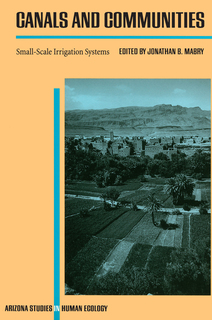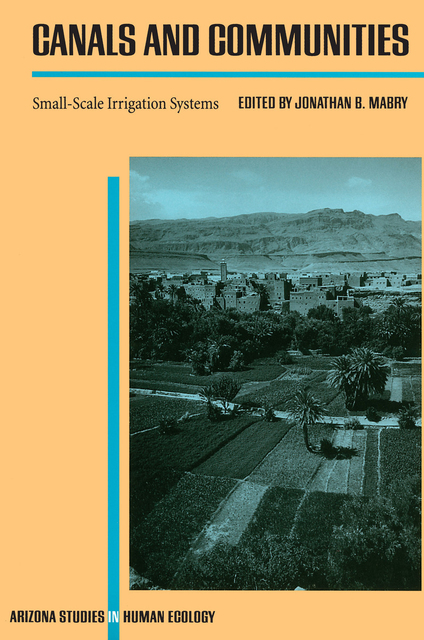Canals and Communities
Small-Scale Irrigation Systems
From the mountains of South America to the deserts of northern Africa to the islands of south Asia, people have devised myriad ways of moving water to sustain their communities and nourish their crops. Many of these irrigation methods have been used over long periods of time and continue to function in diverse ecological and sociopolitical contexts. This book presents case studies and comparative essays about local institutions for managing water resources. Drawn from around the globe, the cases clearly demonstrate that "indigenous" irrigation is often more sustainable, cost-effective, and flexible than has been generally believed. The contributors discuss a wide range of environments, cultural traditions, and historical contexts in which such systems operate, maintaining a common focus on incentives for cooperation, operational rules, collective-choice arrangements, principles of allocation, and conflict-resolution mechanisms. Canals and Communities can serve as a sourcebook for social scientists and development planners investigating the cultural ecology of irrigated agriculture, the ethnology of cooperative social formations, the politics of collective-resource institutions, and the sociology of rural development. The book also provides examples and generalizations about the cross-cultural characteristics of sustainable water resource management and intensive agriculture. Aside from its theoretical contributions to human ecology and anthropology, the book is of practical importance to development studies. The cases it presents make a convincing argument for perpetuating small-scale irrigation systems as part of the world's repertoire of irrigation knowledge and resources.
Texts
Published

Canals and Communities: Small-Scale Irrigation Systems
by Jonathan B. MabryPublished- This text has 0 annotations
- This text has 0 highlights
Metadata
- isbn978-0-8165-4892-7
- publisherUniversity of Arizona Press
- rightsCC BY-NC-ND 4.0
- rights holderUniversity of Arizona Press
We use cookies to analyze our traffic. Please decide if you are willing to accept cookies from our website. You can change this setting anytime in Privacy Settings.


